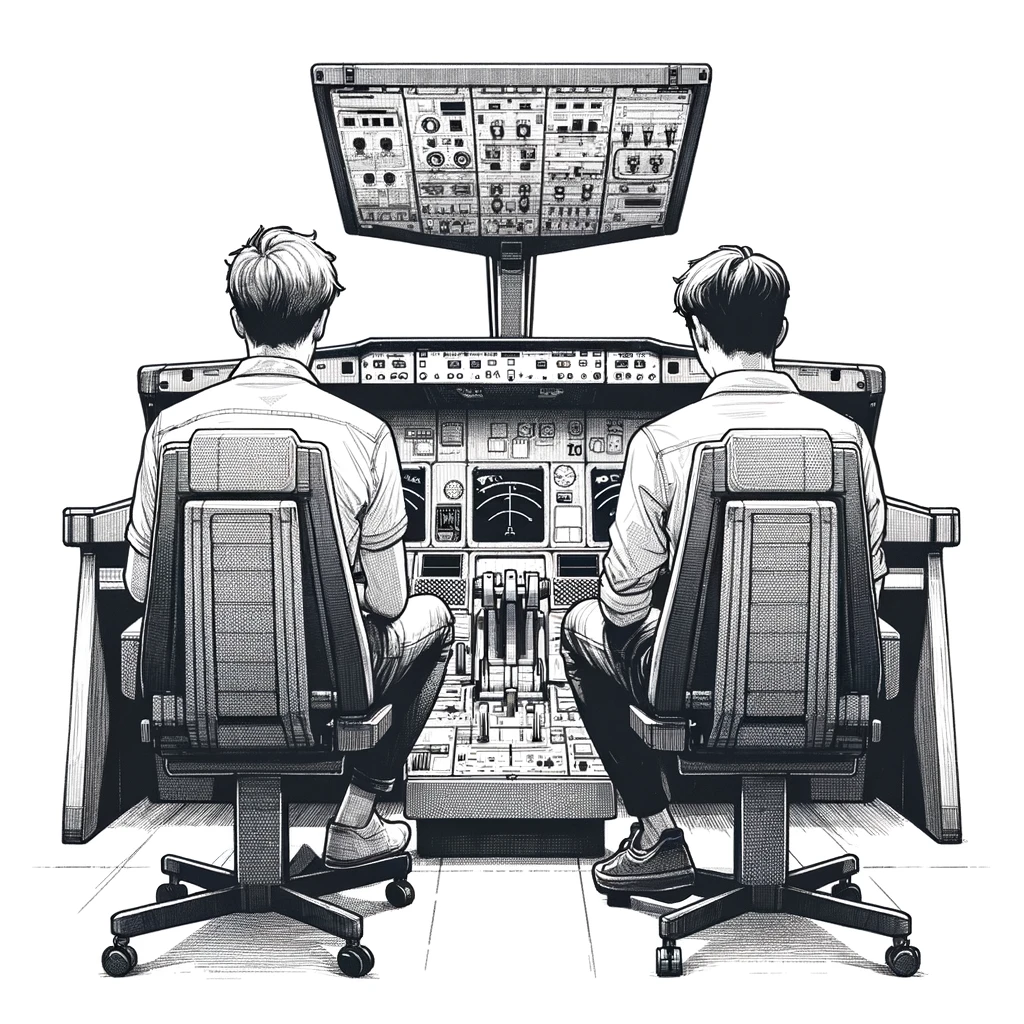Mastering MCC: Your Guide to Excelling as a Team in the Cockpit
Welcome. This where I share my insights and guidance on excelling in your Multi-Crew Cooperation (MCC) course. I’m here to help you navigate through the complexities of becoming an effective team member in the cockpit.
Through my expertise, I’ll provide you with the knowledge, skills, and attitudes essential for mastering both the technical and non-technical aspects of multicrew operations. From clear communication to seamless teamwork, I’m committed to preparing you for the dynamic demands of commercial aviation.
Just so that it is said. There are as many opinions on how to do things in the cockpit as there are pilots. Views presented on this site are mine, and I will also do my best to align with the global understanding of what is best practice.
Join me as we explore the key elements of MCC training, and together, we’ll ensure you’re ready to take on the challenges of the aviation industry with confidence and professionalism. Lets have some fun!

10 questions people often ask
Before starting a multi-pilot aeroplane (Boeing 737, Airbus 320, etc.) training course, pilots must have at least 70 hours of experience as Pilot in Command (PIC) in aeroplanes, hold or have held a multi-engine Instrument Rating (IR(A)), have passed the ATPL(A) theoretical knowledge exams, and possess a certificate of satisfactory completion of an MCC course.
Yes, there are exceptions to the prerequisites. For detailed information on experience requirements and prerequisites for the issue of class or type ratings for aeroplanes, refer to regulation FCL.720.A. Easy Access Rules for Aircrew
An MCC course typically includes at least 25 hours of theoretical knowledge instruction covering multi-crew operations, communication, leadership, and more, plus at least 20 hours of practical simulator training.
Yes, training organizations might offer more extensive MCC programs depending on their curriculum and the students’ needs, exceeding the standard minimum requirements set by EASA.
Yes, there are variations such as the MCC in combination with Jet Orientation Course (JOC) or Airline Pilot Standards (APS) MCC course, each with potentially different duration and content requirements.
The main focus is to develop pilots’ ability to work effectively in a multi-crew environment, enhancing skills like communication, leadership, teamwork, decision-making, and situational awareness.
EASA classifies skills into technical skills, which involve operational and procedural aspects of flying, and non-technical skills like communication, teamwork, and decision-making, often associated with Crew Resource Management (CRM).
Non-technical skills complement technical skills and are crucial for safe and efficient operations, especially in commercial aviation where effective crew cooperation is essential.
Yes, pilots need training in both technical and non-technical skills to ensure safe and efficient aircraft operations, as both sets of skills are essential for optimal flight safety.
Non-technical skills play a significant role in the MCC course by ensuring pilots can communicate, manage workloads, make decisions, and work as a team effectively in a multi-crew cockpit environment.
More stuff is comming on this site, so come back later.